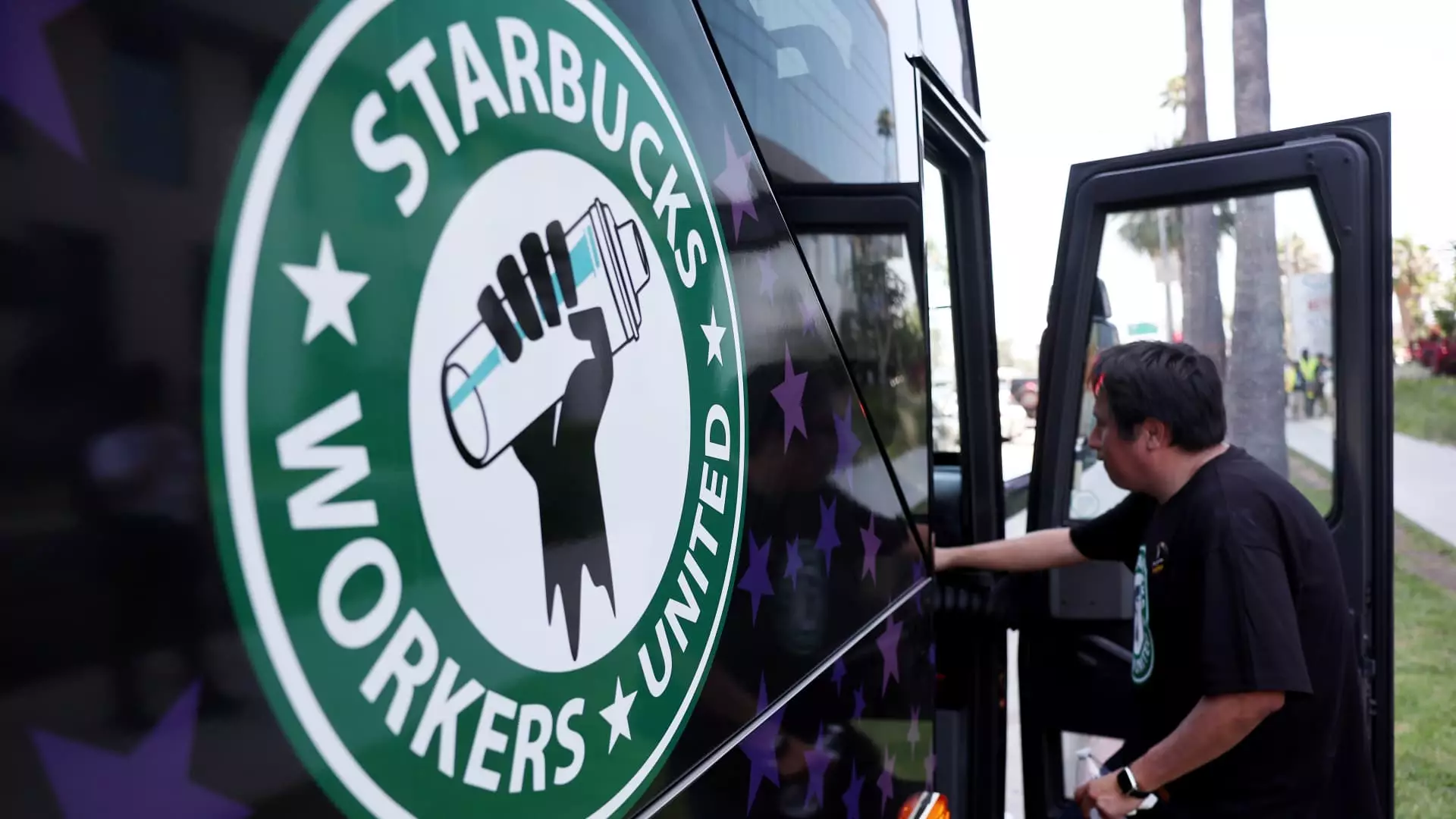As the tensions between Starbucks and its unionized workforce intensify, recent developments reveal that a staggering 98% of union baristas have voted in favor of authorizing a strike. This decisive action, spearheaded by Starbucks Workers United, highlights the urgency behind the workers’ demands for a fair contract after lengthy negotiations that have, thus far, yielded limited results. The parties are slated to regroup for their final scheduled negotiation session of the year, with aspirations of establishing a foundational framework that addresses the baristas’ core concerns.
Throughout the year, both Starbucks and Workers United have dedicated countless hours at the bargaining table, proposing and discussing various tentative agreements. Despite these efforts, the union underscores the reality that numerous unfair labor practice claims remain unsettled, and more critically, Starbucks has yet to put forward a comprehensive proposal to enhance barista wages and benefits. This standoff has created an atmosphere where discontent is palpable among the workforce. According to a statement from Workers United, the lack of progress demonstrates a significant disconnect between the company’s promises and the realities on the ground for its employees.
Starbucks has countered the union’s narrative by claiming that negotiations have been productive. The company’s representatives express disappointment at the union’s strike authorization, advocating instead for a continued focus on what they consider meaningful dialogues. According to Starbucks, numerous agreements have been reached on various subjects, including economic matters that the union delegates have previously deemed important. However, there remains a lingering skepticism among workers regarding the adequacy of these agreements in relation to the broader issues of compensation and workplace conditions.
Under the leadership of new CEO Brian Niccol, who took the helm in September, Starbucks has committed to engaging in good faith bargaining. He recently announced plans to double the company’s paid parental leave, effective March. However, this announcement contrasts starkly with reports suggesting that baristas will likely receive a smaller annual pay increase next year, complicating the narrative surrounding the company’s commitment to employee welfare amid a challenging sales environment.
The ongoing struggle at Starbucks represents a broader trend within the service industry as workers increasingly seek union representation to secure better working conditions and pay. Since the beginning of the unionization efforts in Buffalo three years ago, over 500 company-owned Starbucks locations have voted to unionize under Workers United. This shift not only signals a changing tide within the company but also reflects a larger movement demanding fair treatment and labor rights across various sectors. As negotiations proceed, the outcome will not only affect the employees of Starbucks but may also set a precedent for labor relations in the fast-food and retail industries nationwide.
The situation is evolving and will be closely watched as both sides prepare for the next round of negotiations. Only time will reveal whether Starbucks can successfully balance its operational objectives with the growing demands of its workforce.


Leave a Reply